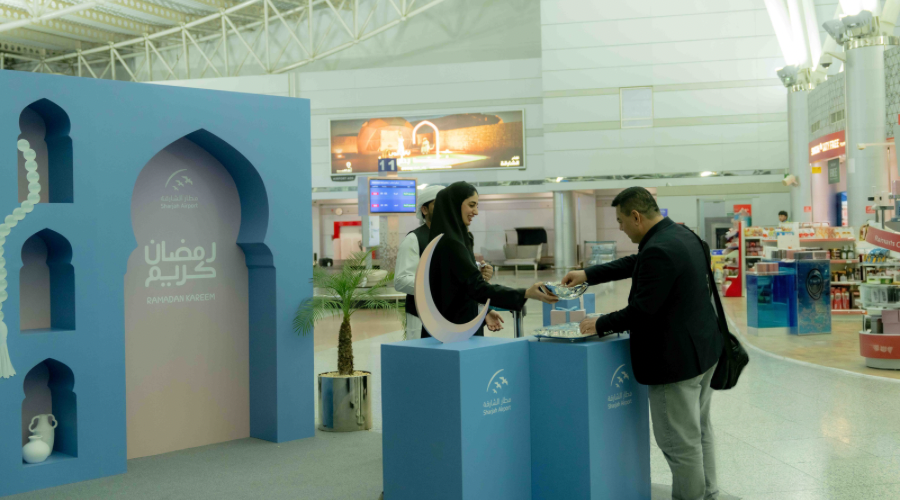
Monday February 9th, 2026
Sharjah Airport Authority (SAA) has announced the launch of a new scheduled air service by Indian carrier SpiceJet, connecting Ahmedabad Airport with Sharjah International Airport, in a move that reflects the airport’s continued efforts to expand its international destination network and deepen air transport links between the United Arab Emirates and India, supporting business, tourism, and family travel between the two countries.
According to the announced schedule, flights will commence on Thursday, 5 February, operating five times per week using Boeing 737 aircraft. The new service is expected to meet growing travel demand while offering passengers greater flexibility and convenience between the two destinations.
The addition of Ahmedabad to Sharjah Airport’s destination network forms part of the airport’s broader strategy to expand its global presence and attract additional international carriers, particularly from high-growth markets such as India, which remains one of the airport’s most significant source markets for inbound and outbound travellers.
Strengthening Global Air Connectivity
On this occasion, His Excellency Ali Salim Al Midfa, Chairman of Sharjah Airport Authority, welcomed the launch of the new SpiceJet flights from Ahmedabad, noting that the addition of this route forms part of the Authority’s ongoing efforts to enhance the passenger experience through a wider range of travel options and highly efficient operational services.
He highlighted that Sharjah Airport continues to invest in the development of its facilities and smart services to ensure seamless procedures and smooth passenger movement, thereby enhancing traveller satisfaction and keeping pace with the steady growth in passenger numbers.
He further noted that the Authority is committed to building long-term strategic partnerships with airlines, supporting the expansion of its destination network and opening new opportunities for cooperation. This approach reflects the airport’s vision to consolidate its position as a leading regional travel hub, combining service excellence, operational efficiency, and an integrated passenger experience.”
The launch comes as Sharjah Airport continues the steady expansion of its route network, with several new destinations recently added including Krabi, Munich, Prague, Warsaw Modlin, Vienna, Addis Ababa, and Sochi. Direct flights to London are also scheduled to commence in March 2026.
Debojo Maharshi, Chief Business Officer, SpiceJet, said, “The launch of our Ahmedabad-Sharjah service is a meaningful addition to SpiceJet’s international network and reflects the strong and growing travel demand between India and the UAE. Sharjah has long been an important destination for Indian travellers, whether for work, tourism or visiting family, and this new service will offer them a reliable and convenient travel option. We look forward to working closely with Sharjah Airport Authority as we continue to strengthen our presence in the region and expand connectivity from key Indian cities.”
During 2025, Sharjah Airport successfully expanded its network to more than 100 global destinations, with four new international airlines joining its portfolio, alongside the introduction of additional services and significant operational enhancements that contributed to faster passenger processing and reduced waiting times.
Sharjah Airport Authority reaffirmed its commitment to working closely with airline partners to continue developing its network and delivering a seamless, efficient, and distinguished travel experience for all passengers.

